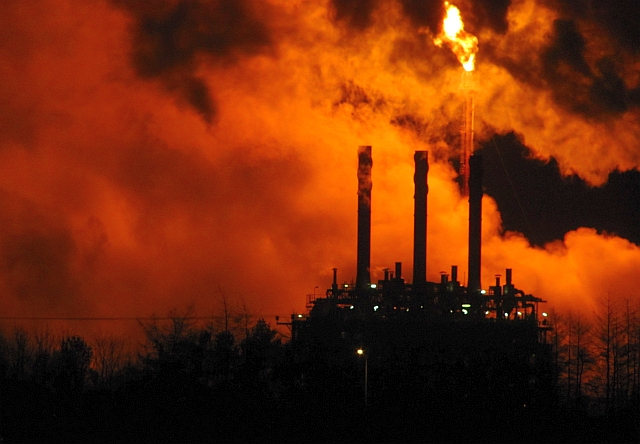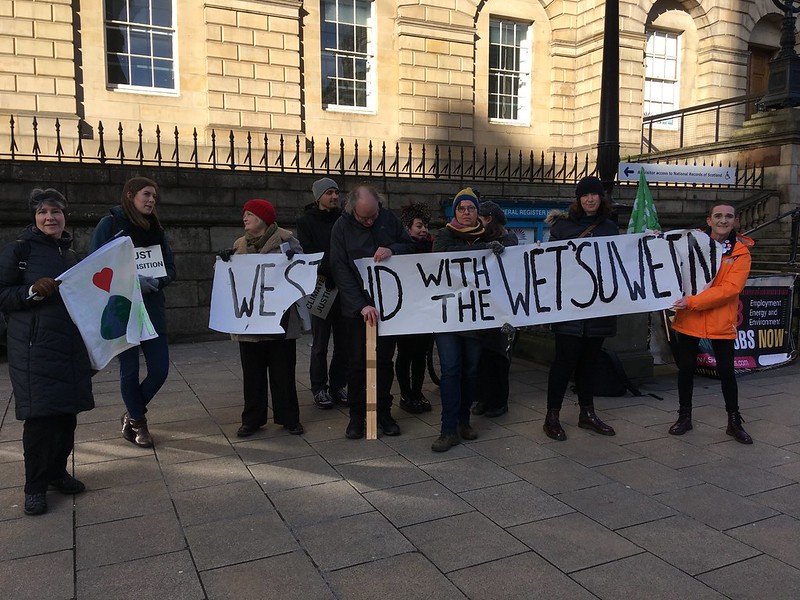We are pleased to publish a contribution to the growing debate on the use of Hydrogen to replace north sea gas for domestic heating written by Pete Roche – the article was originally published in the bulletin of Nuclear Free Local Authorities.
An argument about the future use of hydrogen, in particular for heating, has been raging amongst energy professionals and lobbyists since the Government announced it was looking at setting a date by which all boilers on sale would be “hydrogen ready”, meaning they can burn natural gas but can also be converted easily to burning hydrogen. It was also announced that the natural gas supply at Keele University is being blended with 20% hydrogen in a trial that’s of national significance.
Households could soon be required to install a boiler capable of burning hydrogen when they next upgrade their central heating system. The government has already pledged to ban installation of fossil fuel heating systems in new homes from 2025. In November Sajid Javid, the chancellor, visited the headquarters of Worcester Bosch to inspect its prototype hydrogen-ready boiler. The company says the boilers would be available by 2025. They would be £50-£100 more expensive than existing boilers, which typically cost about £900. The benefit over existing boilers is that they can continue burning natural gas but be converted to burning hydrogen in an operation that will cost about £150 and take a gas engineer one hour.
The Department for Business, Energy and Industrial Strategy’s Hy4Heat programme aims to determine the feasibility of hydrogen for heating in homes and includes work with industry to develop prototype hydrogen appliances, including hydrogen ready boilers. About 1.7 million boilers are replaced each year so if they were required to be hydrogen-ready from 2025 most homes would have the necessary boiler by the mid-2030s to allow a switch to hydrogen. (1)
One of the arguments in favour of converting our gas boilers to hydrogen is that we have poorly insulated houses with insufficient space for installing a heat pump. If you were to design a heating policy from scratch, you would not choose hydrogen. You would build well-insulated houses that use electric heat pumps. (2) Worcester Bosch argues that a house needs to have an Energy Performance Certificate rating of C or above for a heat pump to be able to heat the house effectively. According to them of the 3,276,000 UK properties within the EPC band C rating, some 3,223,000 have a condensing boiler. One of the ways of jumping one clear band within the EPC methodology is to replace a non-condensing boiler with a condensing version. This means that many of the properties in band C are really constructed to band D levels of fabric and therefore unsuitable as they stand for a heat pump installation. (3)
Ed Matthew Associate Director at independent climate and energy think tank E3G says hydrogen is the wrong choice for heating homes. Blue hydrogen (manufactured from natural gas) needs CCS so would be massively expensive and keeps us hooked on gas. Green hydrogen (made by electrolysis using renewable electricity) is 4 times less efficient than using heat pumps. “Hydrogen is being pushed by the gas industry. Beware.”
Dave Toke, reader in energy politics at Aberdeen University agrees. He calls it: “the start of one of the greatest pieces of greenwash that have been committed in the UK.” The oil and gas industry is promoting so-called ‘blue hydrogen’, that is hydrogen produced by ‘reforming’ natural gas, and capturing the carbon dioxide that is produced. Yet currently most hydrogen is produced by reforming natural gas and not capturing carbon dioxide, a process that will dramatically increase carbon dioxide emissions if hydrogen is used to heat homes. The efficiency of the gas reformation process is only around 65% meaning that much more carbon dioxide is generated to produce the hydrogen as fuel compared to simply burning the natural gas. He says any claims that the process will be done using carbon capture and storage, beyond that is a few demonstration projects supported by public grants, should be taken with a wagon load of salt.
But even if ‘green’ hydrogen generated by renewable energy were used, it would still be a grossly inefficient way of using that renewable energy. Renewable energy is normally distributed through the electricity system where it can power heat pumps in homes (either individually or through district heating systems) to much greater effect. The heat pumps use electricity much more efficiently compared to any hydrogen boilers, no matter how the hydrogen is produced. Indeed, a heat pump may increase the efficiency of the use of renewable energy by approaching fourfold compared to using ‘green hydrogen’ in a boiler. (4)
Richard Black from the Energy and Climate Intelligence Unit (ECIU) told BBC News: “We will and should have hydrogen in the mix of energy options, but it’s not a wonder solution to everything, which you sometimes get the impression from the rhetoric. There is hope – but too much hype.” (5)
Commentators also argue about the cost with some saying hydrogen will prove too expensive for mass usage, while others say switching to the use of electricity for heating will be far more costly than gas central heating and will put enormous strains on the grid during the winter months. However, heat battery manufacturer, Sunamp, claims that using an air source heat pump on off- peak electricity in conjunction with a heat battery can heat a house for a price comparable with gas central heating.
Lord Deben, chair of the Committee on Climate Change, has expressed confidence that a way will be found to produce hydrogen, which could provide a low carbon substitute for natural gas in heating systems, cheaper than is currently possible. (6)
The Commonweal Common Home Plan (see below) is sceptical about relying on the conversion of the gas grid to hydrogen. And moving to electric heating would roughly increase by a factor of five peak load on the grid which would require significant upgrades to cope. It prefers instead the idea of building district heating networks which can deliver heat from solar thermal, geothermal and industrial waste heat recovery.
New research commissioned by industry body Scottish Renewables shows the Scottish Government’s new Heat Networks Bill could see the equivalent of 460,000 homes – around a fifth of Scotland’s total – heated renewably by 2030, cutting emissions from heat by 10% and helping tackle the climate emergency. The research found 46 potential heat network projects across Scotland’s seven cities. The networks would initially serve 45,000 homes but could, with the right Scottish Government support, grow ten-fold by 2030. (7)
To date the Scottish Government has said the new Heat Networks Bill will “support, facilitate and create controls [for] the development of district heating” – but is yet to confirm the details. In response to this ongoing uncertainty industry has published, alongside the new research, a set of recommendations on how the Bill should support new projects. The potential projects represent a significant economic opportunity. Civil engineering such as the digging of trenches and laying of pipes accounts for 40% of a typical heat network’s costs, often using locally-sourced labour.
Star Renewable Energy, has installed a heat pump which can extract the small amount of heat generated by the Clyde. The river has an average temperature of around 10oC but engineers can boost it up to 80oC for use in homes. (8)
Meanwhile the HyDeploy pilot involving injecting hydrogen into Keele University’s existing natural gas network, which supplies 30 faculty buildings and 100 domestic properties is now operational. (9) And 7 industrial partners have been pledged to support a demonstration project in Denmark, which, with offshore wind as a power source, will produce renewable hydrogen that can be used in road transport. (10)
- Times 4th Jan 2020 https://www.thetimes.co.uk/article/hydrogen-boilers-may-be-only-choice-for-homes- by-2025-2rw5t3tpt
- Times 4th Jan 2020 https://www.thetimes.co.uk/article/an-exciting-carbon-free-future-depends-on- hydrogen-boilers-6ktqwpgw0
- See The Future of Fuel, Worcester Bosch, 2019 https://www.worcester- bosch.co.uk/img/documents/hydrogen/The_Future_of_Fuel.pdf
- Dave Toke’s Blog 4th Jan 2020 https://realfeed-intariffs.blogspot.com/2020/01/why-uk-government-may- be-encouraging.html
- BBC 2nd Jan 2020 https://www.bbc.co.uk/news/science-environment-50873047
- Edie 6th Dec 2019 https://www.edie.net/news/10/Lord-Deben-chides-politicians-for-failing-to-act-on-decarbonisation-of-heat/Scottish Renewables 11th Nov 2019
- https://scottishrenewables.createsend.com/campaigns/reports/viewCampaign.aspx
- Times 12th Nov 2019 https://www.thetimes.co.uk/article/667e8b5c-04d4-11ea-872c-a98e8bfab8fc
- Edie 2nd Jan 2020 https://www.edie.net/news/8/UK-s-first-grid-injected-hydrogen-trials-begin-in-Staffordshire/
- Orsted 20th Dec 2019 https://orsted.com/da/Media/Newsroom/News/2019/12/945369984118407

The scale of pressure on domestic gas boiler image by Marco Verch CC BY 2.0
























 Image by Pete Cannell – first session on new Scottish Parliament, licensed as CC0, Public Domain
Image by Pete Cannell – first session on new Scottish Parliament, licensed as CC0, Public Domain